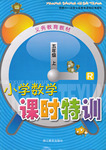题目内容
III.完形填空(共20小题;每小题1分,满分20分)
Learn to Express Thanks
“Exposed to strong sunshine and heavy winds, postmen are the most handsome.”
“Thank you, dear postmen.”
Many Teens readers write letters with such words on the envelopes. Once they are 36 , editors are always 37 by their sincere gratitude
 (感激的心情) to ordinary people.
(感激的心情) to ordinary people.38 gratitude is an important form of good 39 .In western countries, people often write a note to thank those who 40 them. Nowadays more and more people in China have found it’s high time to cultivate(培养) a thankful 41 for the good others do.
Everyone likes to get praised and appreciated. Gratitude is 42 of virtues, which lets
others smile and makes the 43 more beautiful. You just need several 44 to write down a thank-you note, but it could bring much joy to the 45 .
We live in a society 46 we enjoy the different services of others. But none of them should be taken fo
 r granted. Gratitude is also a kind of attitude in life. In developing gratitude for
r granted. Gratitude is also a kind of attitude in life. In developing gratitude for every 47 –for the simple joys, and even for the 48 time—we come to 49 enjoy and appreciate life. Then we are able to see the 50 around us.
Try to write a thank-you letter to your parents for working hard to 51 you a happy life. Be grateful to your 52 because of their help with your studies and character building.
Say thanks to your friends who 53 both your happiness and sorrow and spend a few minutes 54 you go to sleep giving thanks for all that you have.
We are sure it will bring them much joy and add 55 into your own life as well.
36. A. said B.closed C. opened D. invited
37. A. surprised B. interested C. moved D. thanked
38. A. Having B. Expressing C. Taking D. Enjoying
39. A. manners B. uses C. ways D. things
40. A. helps B. has ever helped C. is helping D. have ever helped
41. A. feeling B. heart C. word D. mind
42. A. the good B. the smallest C. the greatest D. good one
43. A. world B. school C. community D. crowd
44. A. times B. words C. pieces D. minutes
45. A. performer B. receiver C. speaker D. doer
46. A. which B. when C. how D. where
47. A. time B. day C. moment D. form
48. A. managing B. challenging C. changing D. developing
49. A. simply B. truly C. hardly D. ably
50. A. truth B. reality C. experience D. magic
51. A. offer B. make C. feed D. put
52.A. classmates B. parents C. teachers D. friends
53.A. gave B. shared C. appreciated D. formed
54. A. after B. as C. before D. while
55.A. color B. taste C. means D. Reflection
36—40:CCBAD 41—45:BCADB 46—50:DCCBD 51—55:ACBCA
略

练习册系列答案
 小学课时特训系列答案
小学课时特训系列答案
相关题目
 ake a moment to explain the ride to them, and tell them what they should do.They are depending upon you to keep them safe.Set a g
ake a moment to explain the ride to them, and tell them what they should do.They are depending upon you to keep them safe.Set a g ood example for them by following the rules of the park, and make sure that they know you expect them to follow those rules, too.
ood example for them by following the rules of the park, and make sure that they know you expect them to follow those rules, too. your child starts to cry, let others pass you in line until your child is calmed.Or, gently exit the queue and find something more relaxing to do.
your child starts to cry, let others pass you in line until your child is calmed.Or, gently exit the queue and find something more relaxing to do.  d ________.
d ________. or happy when they visit a theme park
or happy when they visit a theme park


